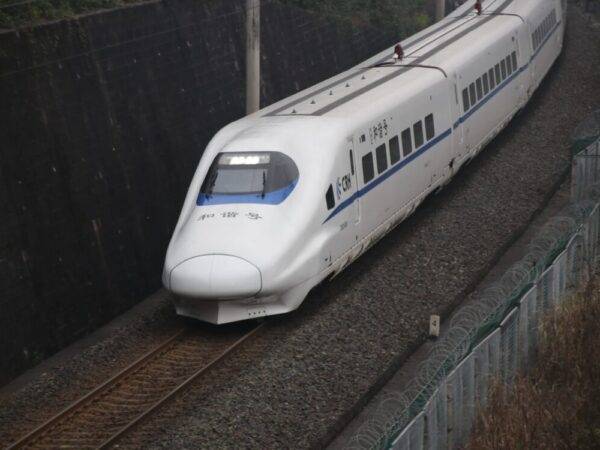
What To Know
- With the pandemic continuing to drone on in waves across the world, the demand for functional safety is compounded with a new challenge for hygiene and safe distancing of passengers, all the while still conforming to consumer demands of a dependable and fast transportation system that never fails.
- For rail systems, we need to cater for the functional safety foundation of IEC 61508, IEC 61511 for process-control and safety systems, IEC 62443 for IT security, as well as rail-specific safety standards such as IEC 62278 for RAMS (Reliability, Availability, Maintainability, and Safety), IEC 62279 for rail software, and IEC 62425 for rail system safety.
Editor’s brief: In the world of land transportation, rail (including the likes of light rail, mass rapid transit or MRT, and speed rail, including maglev) has become the key enabler to many Asia Pacific economies. Rail can be underground and structured above-ground, so can use the least intrusive real estate to move masses around metropolitan cities and beyond. With rail, however, the key question for adopters is whether to use proprietary technologies, or to adopt COTS (commercial off-the-shelf) solutions to keep rail systems safe and secure? HIMA, leading German industrial safety vendor, proposes that COTS is the smarter and more cost-effective way to keep trains and rail systems safe and secure. Read more below.
SINGAPORE – With nations now much more prepared in dealing with the pandemic with vaccinations, testing, and containment, Asia Pacific is slowly and surely getting its economies back to speed as safely and as expeditiously as possible.
Moving masses through the veins of the cities
In many of the Asia Pacific nations, public transportation is the crux to the economies, providing an affordable and dependable infrastructure for work and leisure, especially in highly congested metropolitan cities around the region. Domestic air travel, whilst perhaps faster from point to point, may not be as affordable as rail or bus networks, especially when rail systems become fast and meticulously engineered into urban planning. Domestic high-speed rail for larger nations in this region has become more important, especially as they began to link up provinces.
The region boasts some of the most advanced mass transit rail networks in the world, including the likes of Singapore, Hong Kong SAR, Taiwan, Japan, South Korea, and China. According to the UNIFE Global Rail study conducted by Roland Berger, the rail supply market saw constant growth in recent years, with especially the Asia Pacific making a sizable positive development to the entire market to the tune of 5.3%.
A large continent like Australia has begun to see pockets of successful rail networks, such as the Newcastle Light Rail with 6 stops connecting the waterfront and the key parts of the city, as part of the Newcastle Urban Transformation and Transport Program (NUTTP). The Great Southern Rail is a 400 kilometer railway corridor that now serves mostly freight, but promises to revitalize passenger mobility from Adelaide to Melbourne. This will increasingly become a great enabler for tourism and hospitality, and business travel as well.
Smart Safety and Security for rail with COTS (commercial-off-the-shelf) Solutions
The functional safety of rail networks are mandatory, as such transportation move many people from different points at high speeds with zero tolerance for errors or failures. With the pandemic continuing to drone on in waves across the world, the demand for functional safety is compounded with a new challenge for hygiene and safe distancing of passengers, all the while still conforming to consumer demands of a dependable and fast transportation system that never fails. In the pre-COVID-19 world, regular or daily general cleaning of the cabins and floors may suffice.
Rail safety as well as cybersecurity are mission-critical. For example, should a person falls onto a rail track with a speeding train towards the him, there must be safety controls to enable early braking. Likewise, should there be electrical failures on parts of the train or rail controls, there must be early warning controllers linked to a control panel for operators to intervene early. And in the modern era of incessant hacking, any system, including rail and transportation, that has computers and networks involved, are subject to potential intrusions.
Standards are everything in safety and cybersecurity. For rail systems, we need to cater for the functional safety foundation of IEC 61508, IEC 61511 for process-control and safety systems, IEC 62443 for IT security, as well as rail-specific safety standards such as IEC 62278 for RAMS (Reliability, Availability, Maintainability, and Safety), IEC 62279 for rail software, and IEC 62425 for rail system safety.
“When looking at the safety aspects for rail systems, companies can consider either proprietary safety solutions, or commercial off-the-shelf (COTS) solutions. Proprietary safety solutions may accord certain unique functionality and controls that some companies may prefer. However, given that most rail networks are built for longevity, cost-effectiveness, and ease of maintenance, operators may prefer to look at COTS safety controllers that are standardized and certified by trusted institutions, such as CENELEC SIL4-certified HIMA HIMax and HIMatrix COTS safety controllers,” says Mr Friedhelm Best, Vice President Asia Pacific, HIMA. “The programming of these controllers are based on globally available standard programming languages in accordance with IEC 61131 and provide interfaces to all important technologies such as Ethernet, RS485, or RS232. Communication takes place via broadly accessible protocols such as CAN bus (implemented via COM-User-Task) or Profinet, or specialized high-performance protocols such as the HIMA Safe Ethernet for greater security. The Australian Rail Track Corporation (ARTC) is one such adopter of the HIMA COTS solutions for its rail safety with success and relatively lower costs.”
Surmounting Safety and Cybersecurity Challenges
Cybersecurity threats are ever present and escalating, just as we deal with the pandemic daily as individuals and as institutions. Therefore, the global protocols will continue to change our lives even as economies slowly unravel to manage the crises and damages already done. To enable large populations to move from home and workplaces safely enabled with functional safety, cybersecurity, and medical hygiene, will become the thrust of all rail network operators and government officials alike, especially through standardized and certified COTS safety controllers and solutions. The current and emerging technologies are rising to these challenges and we are surmounting these challenges. After all, we have all braved through economic and pandemic crises before.
For more information, visit: https://hima.com/.
###




